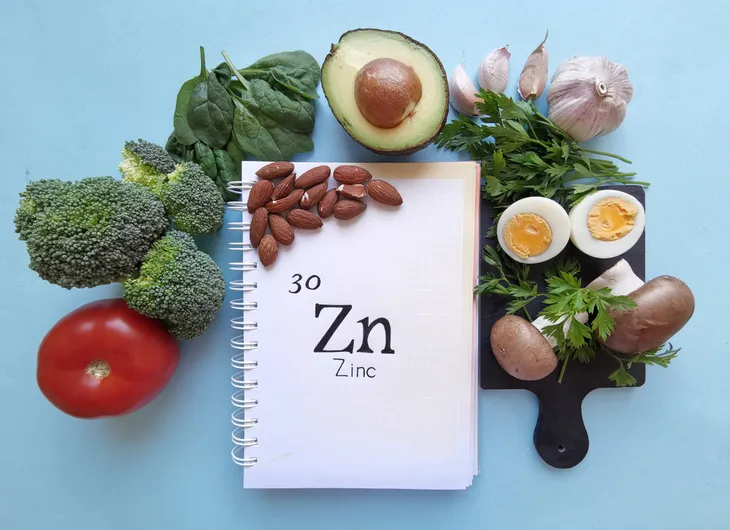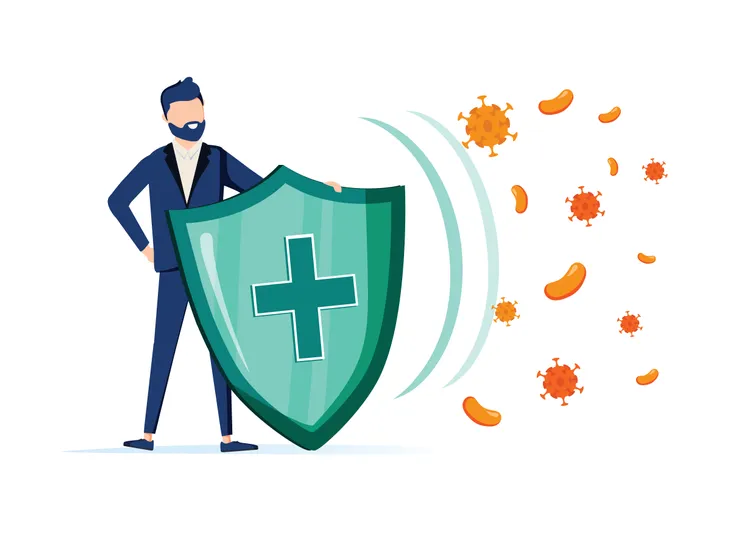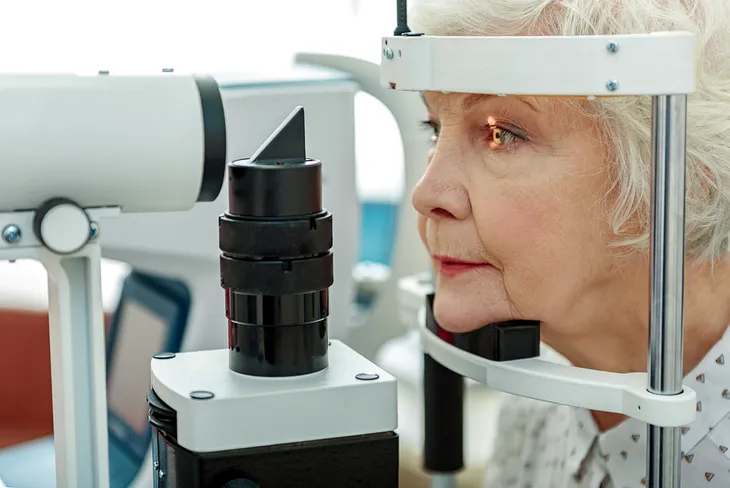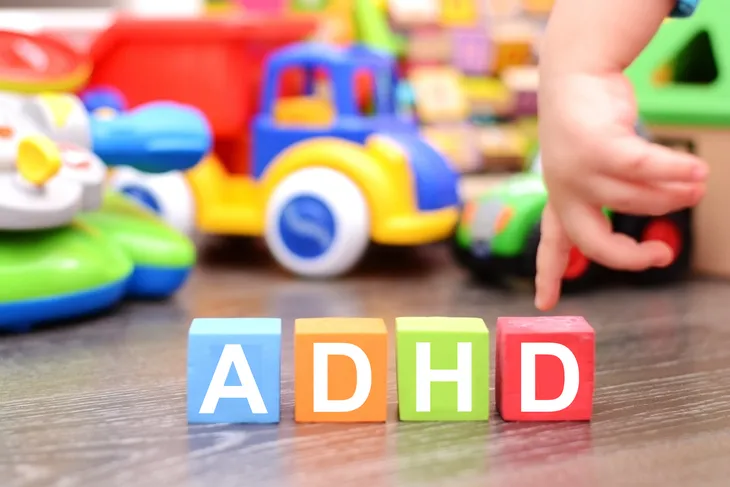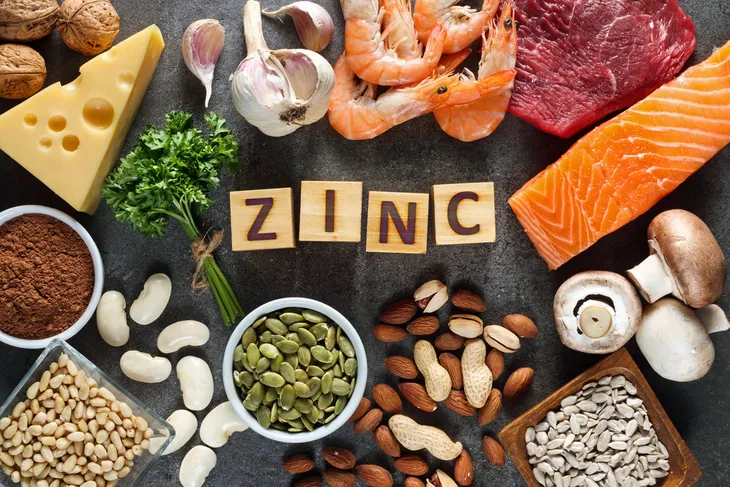When it comes to essential vitamins and nutrients, people often think of iron or magnesium first. However, zinc is also a crucial element (pun intended) of your diet and helps to support many bodily functions from childhood into adulthood. For example, your immune system wouldn’t be as robust without it, and your children may not grow at a normal pace if zinc weren’t available. Luckily, zinc can be found in many foods as well as in supplement form, so there’s little reason to miss out on it!
What Exactly Is Zinc?
As WebMD states, zinc is an “essential trace element” (listed on the periodic table as Zn) found commonly in certain foods (which we’ll get to). It is essential because small amounts of it are needed in the body to maintain your health — and your body doesn’t produce it or store excess zinc.
Britannica.com explains that zinc, classified as a chemical element, is found in trace form in the human body and concentrates in red blood cells. It is “an essential part of the enzyme carbonic anhydrase, which promotes many reactions relating to carbon dioxide metabolism,” it explains.
How Much Zinc Do I Need?
According to the Mayo Clinic, women need about 8-milligrams (mg) of zinc daily, while men need 11-mg. The source says, zinc deficiency isn’t common in the U.S. but those who are found to have lower levels benefit most from zinc supplements.
The source also says the “upper limit dose” of this element is 40-mg for adults, with 4-mg a day max for infants aged 6-months or younger. It warns against using intranasal zinc, as it “has been linked with the loss of the sense of smell.”
Are There Potential Side Effects of Zinc Supplements?
The Mayo Clinic warns that taking high doses of zinc over a long period can result in copper deficiency, which may lead to neurological issues including weakness of the limbs. It adds that oral zinc can carry other side effects such as nausea, indigestion, and headaches.
There are also a few drug interactions to be aware of. The clinic says zinc can have a negative effect when taking antibiotics, as it can hinder the ability to fight off bacteria. It can also lessen the relief provided by penicillamine to combat symptoms of rheumatoid arthritis, and Thiazide diuretics (for blood pressure) can increase the amount of zinc lost through urination.
 fizkes / Shutterstock
fizkes / ShutterstockIt’s Essential for Immune Function
Healthline explains that your immune system just wouldn’t be as effective without the presence of zinc, as it is “necessary for immune cell function and cell signaling.” That means if you have a zinc deficiency, you may have a weakened response to immune threats.
It cites a review of studies that demonstrates taking 80 to 92-mg of zinc per day can reduce the length of a common cold by up to a third. “What’s more, zinc supplements significantly reduce the risk of infections and promote immune response in older adults,” the source adds.
It Helps Heal Wounds
Healthline also points out that zinc is commonly used to speed up recovery from certain injuries. Hospitals often employ zinc to help treat “burns, certain ulcers, and other skin injuries.” The source cites a study of 60 people that suggests 200-mg of zinc daily helped reduce the size of diabetic ulcers over 12-weeks.
Zinc plays an important role in the creation of collagen, meaning it’s important in the healing process of skin (it notes that your skin holds about 5-percent of your entire zinc content). Zinc is also important for inflammatory response, part of the proper healing process. It is also important for disease defense and DNA repair. On the flip side, low zinc levels can slow healing.
Zinc May Slow Macular Degeneration
This is a condition of the eyes that most often affects older adults. Macular degeneration can be marked by distorted vision, blurriness, and even difficulty recognizing faces or seeing bright colors. It often starts in one eye but will progress to both.
Medical News Today cites research that suggests a zinc deficiency may be partially responsible for developing this degenerative condition in the first place. It notes that zinc can possibly slow the progression of the degeneration, but is “unlikely” to prevent it.
It Can Supplement ADHD Medication
WebMD says that oral zinc may help ease symptoms of ADHD in children, which can include trouble focusing, attention, being fidgety, not recognizing dangerous situations, and having a lack of impulse control.
The source explains that taking zinc, along with prescribed ADHD medications, may reduce some of these symptoms. What’s more is that the doctor may find a lower dose of ADHD drugs is needed when using zinc supplements.
Zinc Is Important for Male Fertility
Are you considering becoming a dad? You may want to pay special attention to your zinc intake. That’s because low zinc levels may ” lead to delayed sexual development, fertility problems, and other sexual health issues in males.”
However, while it urges you to get your recommended level of the element to avoid negative impacts, it also warns that too much zinc can have detrimental effects on male fertility. More specifically, it says that too much zinc is toxic and can harm sperm. For that reason, a doctor should guide the use of zinc.
It’s Important During Pregnancy
Zinc is not only important to aid in male fertility. Everyday Health notes the element can reduce the risk of premature birth, based on a review that suggests a 14-percent lower rate of preterm deliveries when mothers-to-be took a zinc supplement.
However, the researchers note that this benefit might be from correcting deficiencies of zinc in mothers with poor diets, rather than from boosting normal levels. The source says a supplement might be given to pregnant people found to be deficient and advises to maintain zinc intake throughout pregnancy.
Crucial for Childhood Growth
Once the child is born, zinc becomes an important building block for their development. Everyday Health notes that children with low levels of zinc may face failure to thrive, which is a common term used to describe improper weight gain in children that is also accompanied by slower growth compared to others in the same age group.
The source points to a meta-analysis of zinc supplementation in young children, which suggests supplements supported increased weight and height especially after age 2. However, because of potential side effects, it’s important to consult a pediatrician to determine if supplements are actually needed and to weigh the pros and cons.
It’s Beneficial for Oral Health
Seeing the dentist regularly and proper brushing/flossing at home are obviously important to maintain tooth and gum health. However, WebMD points out several ways how zinc can keep your mouth happier in general. For example, the source says it may help prevent gingivitis, which is a “mild” form of gum disease that can be marked by bleeding gums.
The source also says that chewing gum, sucking on candy, or using mouth rinse all containing zinc may help to prevent bad breath, known in the medical community as halitosis. It can also help people with hypogeusia (reduced taste) to enjoy more flavors in foods. The source also adds that zinc can help prevent dreaded cold sores around the mouth when applied to the skin.
Zinc Can Be Effective for Treating Depression
Psychology Today posted an article that says zinc plays “a part in modulating the brain and body’s response to stress all along the way.” Meanwhile, it notes the body sheds zinc through urine and sweat when under heavy stress. It also notes that zinc is most concentrated in the brain, primarily in the hippocampus that plays a major role in memory.
A lack of zinc can lead to a number of conditions relating to the brain, such as the aforementioned ADHD, as well as learning problems, seizures, and depression. In particular, the source notes, “zinc has been found to be low in the serum of those suffering from depression.”
 fizkes / Shutterstock
fizkes / ShutterstockSources of Zinc
Medical News Today explains that zinc can be found naturally in many foods. These include meat, beans, fish, whole-grain cereals, and dairy products. In some cases, the product may be fortified with zinc — be sure to check the label.
Meanwhile, zinc is also available as supplements in capsules, creams, ointments, and liquids. The source says that if you’re 19 or over and want to try supplements, you should consult a doctor first to avoid any related side effects from overuse. It also says those following a plant-based diet may need additional zinc, as “the zinc available in these foods is harder for the body to absorb.”

